If you or someone you know grew up in a difficult home environment, it can be common for people to develop certain personality traits or "survival techniques" during this time — which can impact their adult lives in the long run.
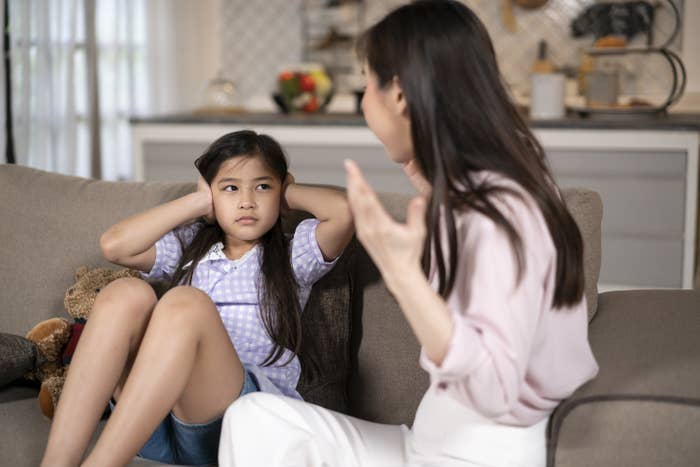
So when I saw that Reddit user u/ThatRamKid recently asked, "What's a sign of childhood trauma?" I thought it would be helpful to share some of the answers to see if others might resonate. Here's what some respondents had to say:
1. "Hyper independence. You can’t be let down if you never ask for anything in the first place."

2. "Difficulty trusting, low self-esteem, and fears of being judged."
3. "Completely shutting down when criticized or corrected. It took me years to get past this."
"Yes! I always feel like I have to explain myself because I think people wouldn’t criticize or correct me if they knew what I was thinking."
4. "In some cases, excessive people-pleasing tendencies."

5. "I am always scared that people are mad at me. Always."
6. "Trouble forming relationships."
7. "Getting disproportionately frustrated at themselves for small accidents such as spilling things and accidentally breaking something. What happens is a lot of these people were abused as kids for doing these things, so as adults, when these things happen, their brains overload their systems with fear and anxiety, and frustration can be a secondary emotion to that. This is basically a conditioned response because your brain associates these accidents with imminent danger. This is why therapy is so important for people who had shit childhoods, especially during their developing years. I had no idea this was a thing until I went to therapy, but when my therapist explained this to me, it made so much sense. And now when these things happen, I tend to laugh it off."

8. "Always saying sorry. Feeling guilty for speaking up."
9. "Choosing partners who don't support, cherish, or value you. Choosing jobs and relationships that reflect the lack of empathy and neglect that you grew up with."
10. "Unable to forgive themselves for small mistakes."
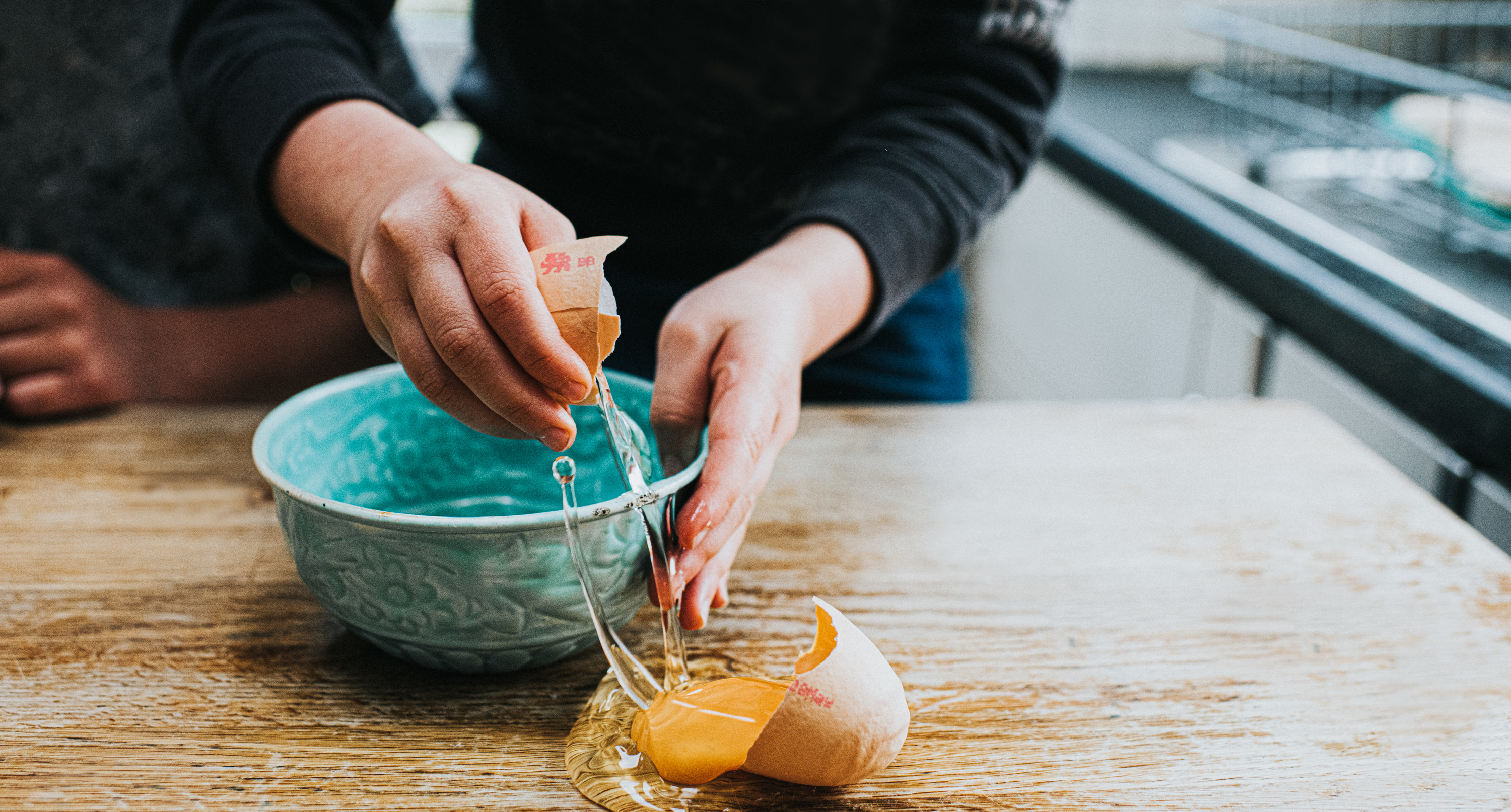
11. "Oversharing when you haven’t known the person long. Or the opposite, where you don’t open up to anybody. Two extremes."
"What about both? Oversharing with total strangers but not opening up to friends/family."
"That’s me, but not with in-person strangers — only online strangers, where I can be anonymous."
12. "Having a hard time showing emotion."
"This, and sometimes having a hard time even describing how or why you feel the way you do."
"This is a big one. A side effect of emotionally numbing yourself, or depersonalization."
13. "Hypervigilance."
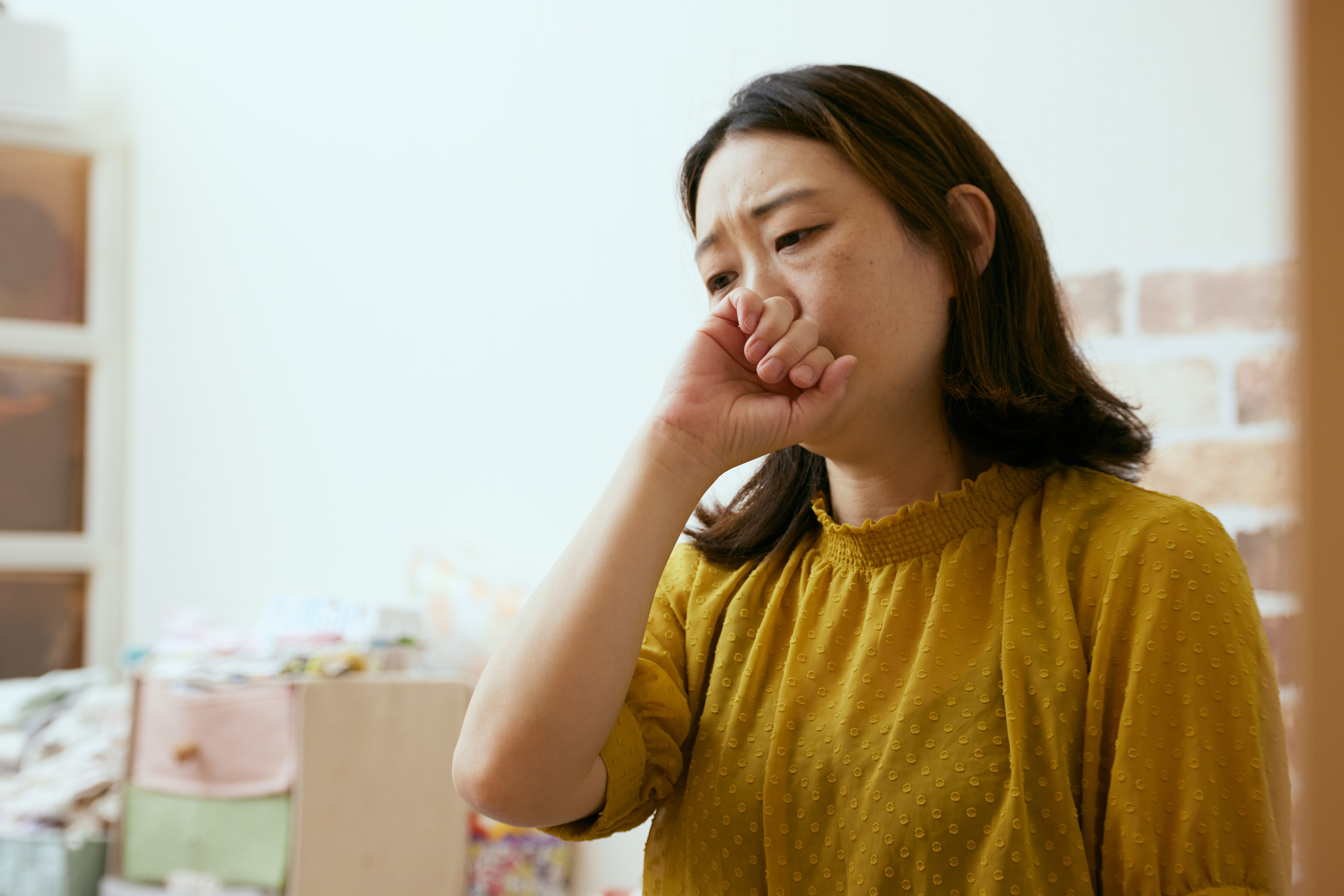
14. "Scared of conflict to the point where you avoid it at all costs, because you're certain that if it happens, the other person will hate you or it will end horribly. You’ve never seen people calmly sit down and discuss their emotions in a loving way, so that world doesn’t exist for you."
15. "The ability to stay calm in emergencies or chaotic situations."
"Ahh, that last one got me. When shit hits the fan, I am almost always calm, but when things are just fine...crippling anxiety about what could go wrong, LOL."
16. "Peacekeeping. A kid doesn't realize that their parent (mom, in my case) is an emotionally abusive asshole. All I knew is, I didn't want people to be so mad at each other. I think my life would have been better if I hadn't talked them out of divorce."
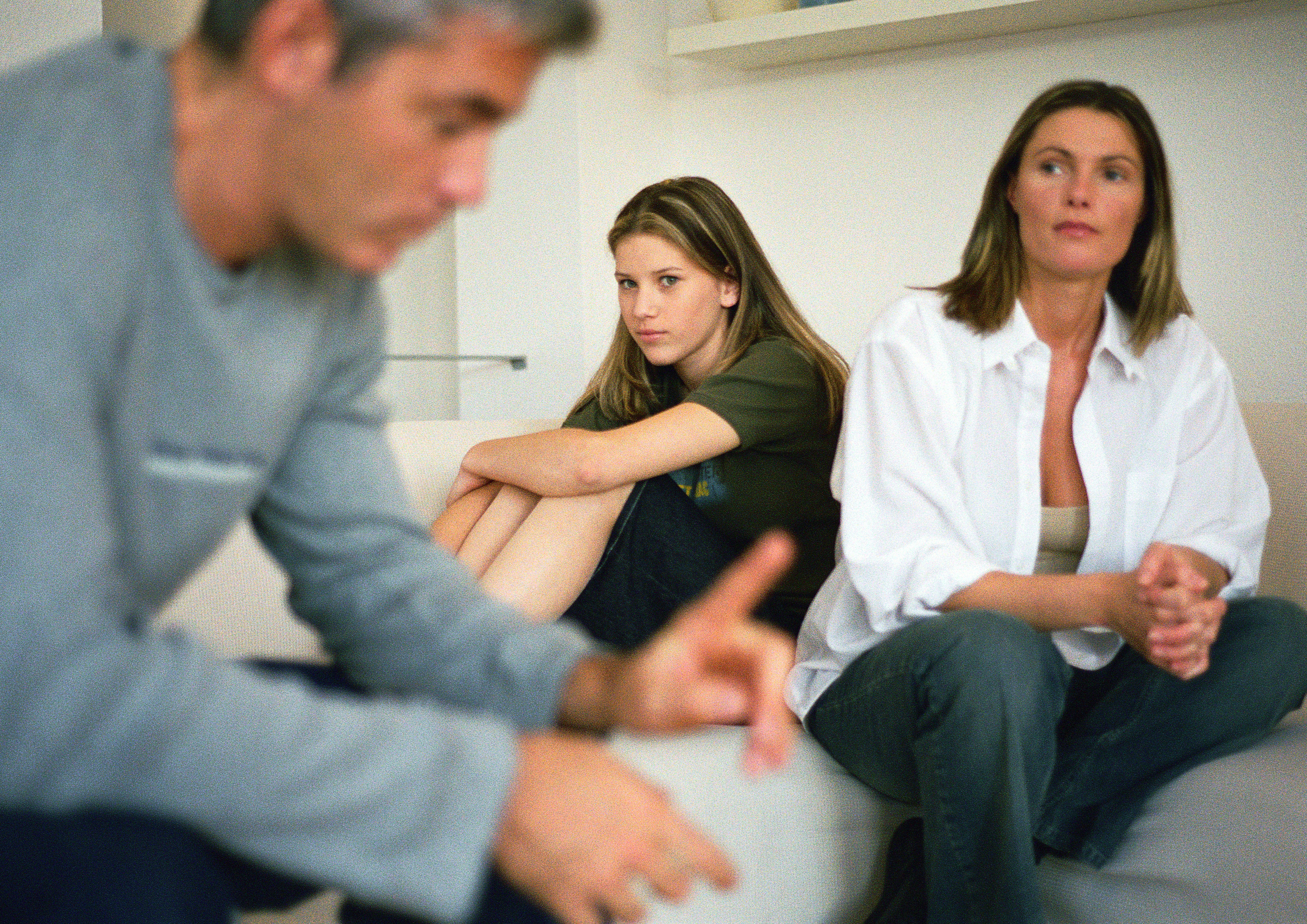
17. "Feeling bad just for existing."
18. "Perfectionism. This has been a hard lesson for me to learn. I just always thought I was bad at everything or 'lazy,' when, in fact, I deal with a crippling level of perfectionism."
19. "Extreme self-cringe. Doubting if what you said was the right thing. Doubting if you acted the right way, or behaved the right way in a social setting. Asking someone several times if you did something correctly. Zoning out because you randomly remembered a traumatic childhood memory, low self-esteem, lack of confidence."

20. "No or few good memories."
"I feel amazed when someone remembers every detail of their childhood, all their schoolteachers' names from grades 1 through 12. My early years are mostly haze."
21. "An adult acting childlike. People think it's cringe, but age regression is a trauma response. You can especially see this if you've ever been to a psych ward. People are clinging to blankets and stuffed animals. Childhood was probably the last time they existed without being traumatized."
22. "Childish activities become almost like treats. People can just enjoy watching things from their childhood or playing games independent of trauma, but it is incredibly common for people with trauma to want to relive the childhood they lost when they are in a safer environment."
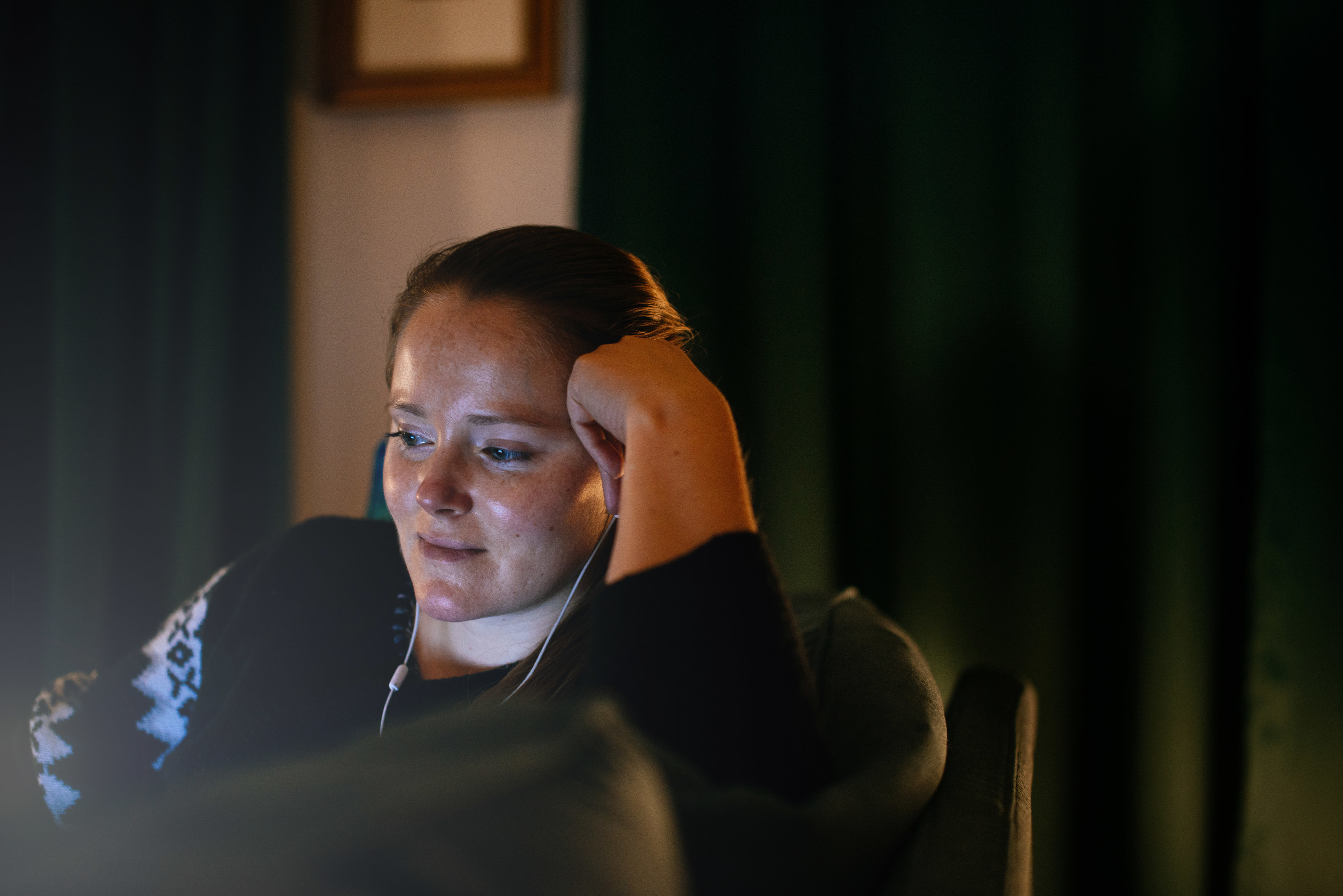
23. "Being an 'empath.' You actually have conditioned yourself to be highly attuned to micro changes that indicate negativity you need to look out for."
24. "Constant dark humor or self-deprecating humor. People might think you're really funny and forgiving, but sometimes they are both just coping mechanisms."
25. "Being insecurely attached to friends and romantic partners."

26. "Overexplaining."
"Justifying your thoughts and actions in your head as if preparing for someone to pop in and demand an explanation."
27. "Constantly feeling that you need approval from other people."
28. "No eye contact. I know because even at the age of 45, I always struggle with this."
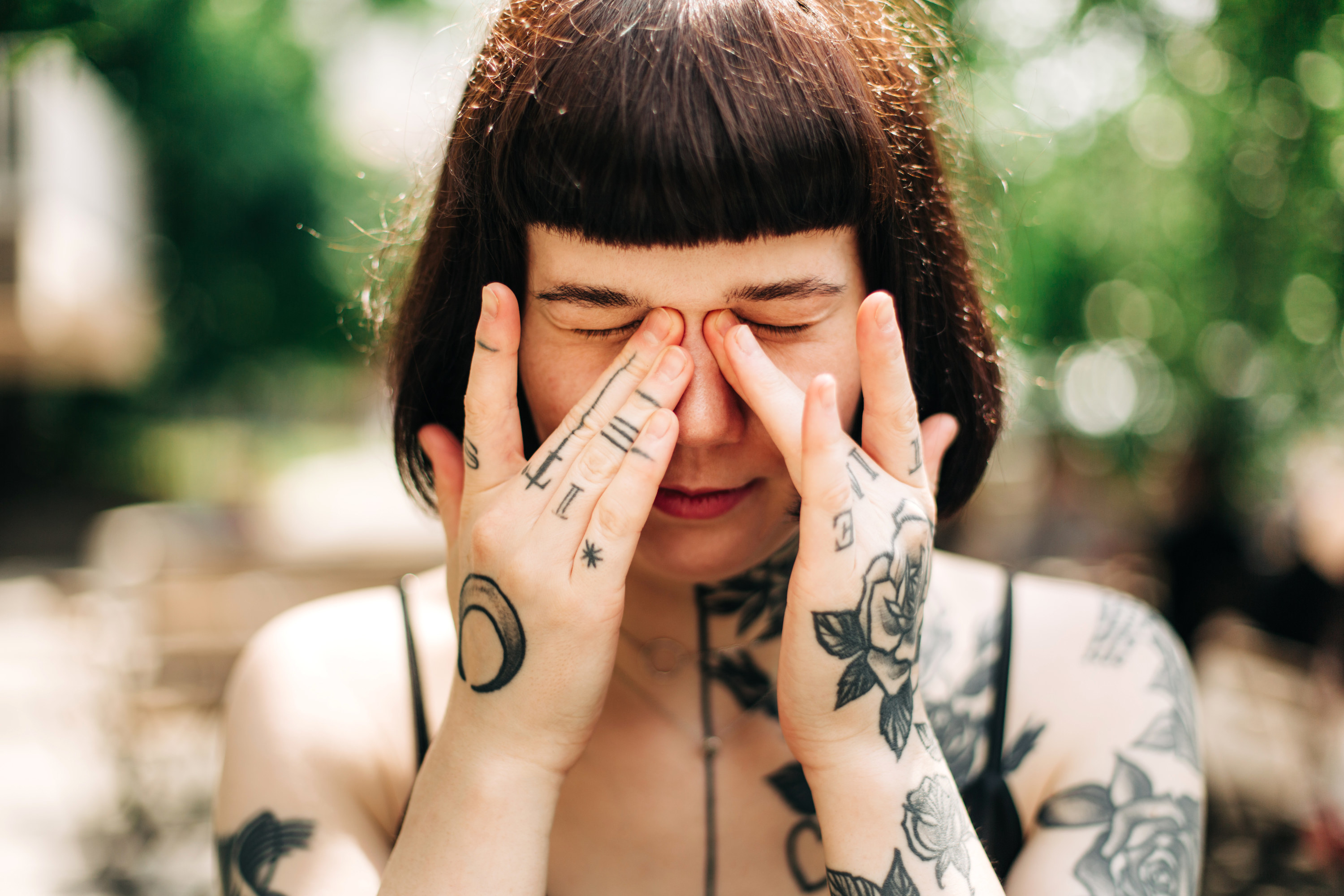
29. "Someone once told me, 'Your parents shouldn't be your first bullies,' and holy FUCK, that rocked me. One sign you can notice in yourself that I didn't realize until I started therapy: You don't have physical sensations when feeling. Everything is just like...mental? It's hard to explain, but happiness is supposed to exist somewhere physically. Not every emotion is supposed to be represented by your permanent vague chest tension. Wild!"
"Another sign: You rarely, if ever, talk about yourself socially. I ask a shit ton of questions of people, and I am happy to listen to them and hear their problems, but I don't share much of myself with anyone. It makes it hard for me to deepen relationships because I don't practice vulnerability. I don't think people want to hear from me."
Are there other signs of childhood trauma that weren't mentioned above? If so, tell us what they are in the comments below.
Note: Some responses have been edited for length and/or clarity.
If you or someone you know is struggling with substance abuse, you can call SAMHSA’s National Helpline at 1-800-662-HELP (4357) and find more resources here.
Dial 988 in the US to reach the National Suicide Prevention Lifeline. The Trevor Project, which provides help and suicide-prevention resources for LGBTQ youth, is 1-866-488-7386. Find other international suicide helplines at Befrienders Worldwide (befrienders.org).
The National Alliance on Mental Illness helpline is 1-888-950-6264 (NAMI) and provides information and referral services; GoodTherapy.org is an association of mental health professionals from more than 25 countries who support efforts to reduce harm in therapy.
